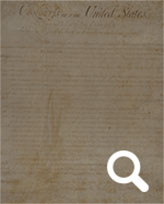Don’t Ask, Don’t Tell Repeal Act of 2010
Don’t Ask, Don’t Tell Repeal Act of 2010
During World War II, the U.S. Armed Forces established a policy that discharged homosexuals regardless of their behavior. In 1981, the Defense Department prohibited gay and lesbian military members from serving in its ranks with a policy that stated, “Homosexuality is incompatible with military service.” In the decade following, 17,000 service members were discharged from their duties for being homosexual.
This spurred a new policy called “Don’t Ask, Don’t Tell” during the Clinton Administration. In November 1993, the Defense Authorization Act put “Don’t Ask, Don’t Tell” into effect, allowing gay and lesbian citizens to serve in the military as long as they did not make their sexual orientation public. Commanders were prohibited from inquiring about a service member’s orientation provided that they adhered to this condition. Additionally, the policy forbid military personal from discriminating against or harassing closeted homosexual service members and applicants.
By 2008, more than 12,000 officers had been discharged from the military for publicizing their homosexuality. On December 18, 2010, the Senate overturned the “Don’t Ask, Don’t Tell” policy by a 65-31 vote, which President Barack Obama signed a few days later. The repeal allows gay and lesbian military members to serve openly in the armed forces.
The first and signature pages of this document are on display in the “Landmark Document” case in the Records of Rights exhibition in the David M. Rubenstein Gallery of the National Archives in Washington, DC, from December 16, 2015, through March 15, 2016.
Past Featured Records
-
Frances Perkins: Champion of Workers’ Rights
Thursday, February 29, 2024 – Monday, April 15, 2024
East Rotunda Gallery“I came to Washington to work for God, FDR, and the millions of forgotten plain common workingmen.” —Frances Perkins
Chances are you benefit from the legacy of Frances Perkins,... Read more
70th Anniversary of Brown v. Board of Education of Topeka
Thursday, February 1, 2024 – Wednesday, February 28, 2024
East Rotunda GalleryEquity in Education: 70 Years Later
On May 17, 1954, the Supreme Court delivered a unanimous ruling in Brown v. Board of Education of Topeka that “separate but equal” was unconstitutional in... Read more
250th Anniversary of the Boston Tea Party
Thursday, December 14, 2023 – Wednesday, January 31, 2024East Rotunda GalleryThe Destruction of the Tea
It wouldn’t be known as the “Boston Tea Party” for another 50 years, but the destruction... Read more
Diseños: An Impact of Mexican Cession
Tuesday, June 20, 2023 – Wednesday, October 18, 2023
East Rotunda GalleryAt the end of the Mexican-American War, the United States annexed more than half of Mexico’s territory under the 1848 Treaty of Guadalupe Hidalgo. Under its terms, the U.S. promised to... Read more
Celebrating Anna May Wong
Anna May Wong
National Archives, Records of the Immigration and Naturalization Service“I want to be an actress, not a freak.”
Film legend Anna May Wong’s talent could not be contained by the racist casting of early Hollywood movies. Born Wong Liu Tsong in Los Angeles in 1905,... Read more








